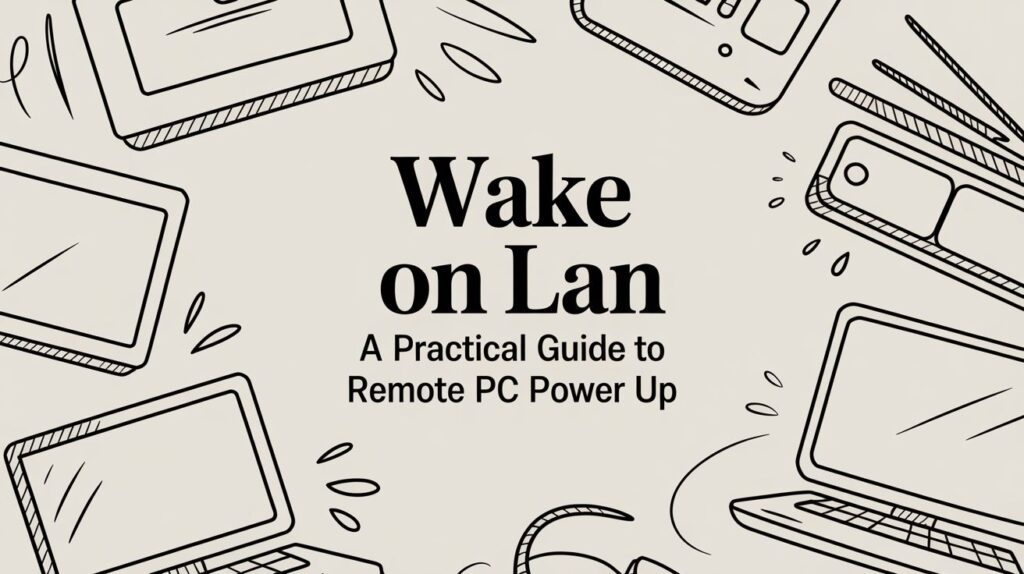Is it Possible to Run a Half Marathon Without Training? Insights and Experiences

Ever wondered if you could just wake up one day and decide to run a half marathon without any training? It sounds wild, but some folks have tried it. They lace up their sneakers, maybe grab a banana, and just go for it. But is it really doable? And more importantly, is it a good idea? Let’s dive into what you might face if you decide to take on those 13.1 miles on a whim.
Key Takeaways
- Running a half marathon without training can lead to serious injuries and long-term health issues.
- Mental toughness is crucial, but it might not be enough to overcome physical unpreparedness.
- Proper hydration and listening to your body are essential, even if you’re not trained.
- Experts generally advise against running a half marathon without preparation.
- Alternative training methods, like cross-training, can help if traditional training isn’t possible.
Understanding the Risks of Running a Half Marathon Without Training

Potential Physical Injuries
Running a half marathon without training is no small feat, and the risks to your body are significant. Your muscles and joints could face considerable strain, leading to injuries like stress fractures, shin splints, and tendonitis. Without proper conditioning, your body isn’t prepared for the repetitive impact of running 13.1 miles, making you more susceptible to these injuries.
Mental Challenges and Fatigue
The mental toll of running such a long distance without preparation is immense. You might start strong, but as the miles drag on, fatigue sets in, and your mind begins to play tricks. The lack of training means you haven’t built the mental resilience needed to push through the tough spots. Mental exhaustion can be just as debilitating as physical fatigue, leaving you questioning your ability to finish.
Impact on Long-term Health
Attempting a half marathon without adequate preparation can have long-term consequences on your health. The immediate physical stress might lead to prolonged recovery times, and in some cases, exacerbate existing health issues. The stress on your cardiovascular system, in particular, could be concerning if you haven’t gradually built up your endurance. It’s essential to weigh these risks before deciding to run without training.
Running a half marathon is a challenge that requires respect for the distance and preparation to match. It’s not just about crossing the finish line, but doing so in a way that honors your health and well-being.
Personal Stories: Experiences of Running a Half Marathon Unprepared
Unexpected Challenges Faced
Running a half marathon without training can be a wild ride. Imagine waking up on race day and thinking, "What did I get myself into?" The first few miles might feel like a breeze, but soon enough, reality hits. Your legs start to feel like lead, and every step becomes a mental battle. Blisters, cramps, and the dreaded "wall" are just a few hurdles untrained runners might face. Some folks even find themselves questioning their sanity halfway through. It’s not just the physical toll; the mental strain is real, too.
Lessons Learned from the Experience
So, what do you take away from such an adventure? First off, respect the distance. A half marathon isn’t just a walk in the park. It’s a reminder that preparation is key. Many untrained runners realize the importance of pacing and listening to their bodies. They learn to appreciate the little victories, like making it to the next mile marker. And let’s not forget the importance of proper gear—those fancy shoes aren’t just for show.
Would They Do It Again?
Would these brave souls tackle another half marathon without training? Opinions vary. Some say, "Never again!" while others find the thrill addictive. The sense of accomplishment from crossing that finish line can be intoxicating. It’s a mix of relief, pride, and sheer exhaustion. For some, it’s a one-time adventure, a story to tell at parties. For others, it’s the start of a new obsession, a spark that ignites a passion for running.
The Role of Mental Strength in Completing a Half Marathon Without Training
Overcoming Mental Barriers
Running a half marathon without training is as much a mental challenge as it is a physical one. Your mind can be your greatest ally or your worst enemy. Often, it’s the mental barriers that scream for you to stop, convincing you that every step further is impossible. But here’s a secret: your mind is often wrong. To get past these barriers, some runners use distraction techniques like listening to energizing music or engaging podcasts. Others rely on the power of self-talk, repeating affirmations that keep them moving forward.
Staying Motivated During the Race
Motivation can be fleeting, especially when fatigue sets in. It’s crucial to have a mental toolkit ready. Some runners find motivation by setting mini-goals throughout the race, like reaching the next mile marker or catching up to the runner ahead. Others might focus on the bigger picture, reminding themselves why they started the race in the first place. Having a strong "why" can push you through the toughest miles.
The Power of Positive Thinking
Positive thinking isn’t just a cliché; it’s a tool that can transform your race experience. Visualizing success, imagining yourself crossing the finish line, can boost your confidence and energy. Even when your legs feel like lead, maintaining a positive mindset can help shift your focus from discomfort to the achievement waiting at the end. Remember, positivity isn’t about ignoring the struggle—it’s about acknowledging it and choosing to believe in your ability to overcome it.
Embracing the mental challenges of a half marathon without training can lead to unexpected growth. While the body powers through the physical, it’s the mind that truly carries you to the finish line. The journey might be tough, but the sense of accomplishment is worth every mental battle.
Essential Tips for Attempting a Half Marathon Without Prior Training

Listening to Your Body
Running a half marathon without training is no small feat, and your body will likely tell you that in no uncertain terms. Pay close attention to any signs of distress. If you feel sharp pain, dizziness, or extreme fatigue, it might be your body’s way of saying "slow down" or "stop." Remember, it’s better to walk or take a break than to risk injury.
Importance of Proper Hydration and Nutrition
Hydration and nutrition are your best friends on race day. Make sure to drink water regularly, but don’t overdo it—too much can be as bad as too little. Consider carrying a small bottle with you. On the nutrition side, carbohydrate-rich snacks like energy gels or bars can keep you fueled. Eating a light meal a couple of hours before the race can also help.
Pacing Yourself Wisely
Without training, your stamina might not be where it needs to be, so start slow. The adrenaline at the starting line can push you to go faster than you should. Instead, focus on maintaining a steady, comfortable pace. You can always pick it up in the later miles if you’re feeling good.
Attempting a half marathon without training is a challenge. But with careful attention to your body’s signals, proper hydration, and smart pacing, it can be a rewarding experience. Just remember, the goal is to finish safely, not to set a personal record.
Expert Opinions: Is It Advisable to Run a Half Marathon Without Training?
Insights from Professional Runners
Professional runners often emphasize the importance of preparation before tackling a half marathon. Training is key to not only achieving a good time but also ensuring that you can complete the race without injury. Most pros agree that while it might be possible to finish a half marathon without training, it’s not something they would recommend. They point out that running without preparation can lead to a miserable experience, both physically and mentally. The overwhelming consensus is that running, especially long distances, should be approached with respect and proper groundwork.
Medical Experts Weigh In
Medical professionals are even more cautious. They highlight the risks associated with running long distances without adequate training. These risks include muscle strains, joint injuries, and severe fatigue. Doctors often advise against running a half marathon without preparation, especially for those who do not have a regular fitness routine. They stress that the body needs time to acclimate to the stress of long-distance running, and without this, you might be setting yourself up for serious health issues.
The Consensus Among Coaches
Running coaches also have strong opinions on this topic. For them, a structured training plan is not just about improving performance but also about injury prevention. Coaches argue that without training, you miss out on learning how to pace yourself, manage hydration, and handle the psychological aspects of a long race. They suggest alternatives like cross-training or shorter practice runs for those unable to commit to a full training schedule. Coaches generally agree that while the idea of running a half marathon without training might seem intriguing, it’s not advisable.
Attempting a marathon without training might sound adventurous, but it often leads to unexpected challenges and potential health risks. Always consider the long-term impact on your body before making such a decision.
Alternative Preparations for Those Unable to Train Traditionally
Cross-training as a Substitute
When traditional running isn’t an option, cross-training can be a game-changer. Activities like cycling, swimming, or even rowing can help build endurance and strength without the impact stress of running. These exercises not only keep your cardiovascular system in check but also add variety to your routine, making workouts more enjoyable. Cross-training can effectively maintain your fitness level, ensuring you’re ready for race day even if you haven’t logged many miles.
Utilizing Shorter Practice Runs
Shorter practice runs, like 5Ks or 10Ks, allow you to experience the race environment without the full commitment of a half marathon. These races offer a chance to test pacing, hydration strategies, and gear preferences. They act as mini-rehearsals, helping you identify what works and what doesn’t, so you can tweak your approach before the big day. Newer runners can start with two or three rounds of 1K/200 meters, gradually increasing as they gain confidence. This approach emphasizes mastering the basics before progressing to more challenging workouts, ensuring a solid foundation for marathon and half-marathon training.
Incorporating Mental Conditioning
Running a half marathon without traditional training demands mental fortitude. Visualization techniques, mindfulness, and positive affirmations can bolster your mental game. Mental conditioning helps you overcome doubts and stay focused when the going gets tough. Consider setting aside time each day for mental exercises, just as you would for physical training. This preparation can be the key to pushing through those final miles when your body wants to quit.
Even if your physical training isn’t perfect, your mind can be your strongest ally. Trust in your preparation, stay positive, and remember why you’re running. The mental journey is just as important as the physical one.
The Aftermath: Recovery and Reflection Post Half Marathon
Dealing with Physical Exhaustion
Crossing the finish line of a half marathon without prior training is no small feat, but it can leave your body feeling utterly drained. It’s crucial to recognize that your muscles and joints have taken a beating. The first step is to keep moving—resist the urge to sit down immediately. Walking around helps prevent stiffness and promotes circulation. Consider these steps to aid recovery:
- Gentle Stretching: Focus on major muscle groups like calves, hamstrings, and quads.
- Hydration: Drink plenty of fluids to replenish what was lost during the race.
- Nutrition: Eat a balanced meal rich in proteins and carbohydrates to aid muscle repair.
Reflecting on the Experience
Running a half marathon without preparation is a mental and physical challenge. Reflecting on this experience can be enlightening. Ask yourself:
- What was the most challenging part of the race?
- How did you overcome moments of doubt?
- What did this experience teach you about your limits and strengths?
Reflecting on these questions can provide insights that extend beyond running.
Planning for Future Races
After surviving such a demanding event, you might feel inspired to tackle more races, but with better preparation. Consider setting realistic goals and a training schedule for next time. Here’s a simple plan to get started:
- Set a Training Schedule: Begin with short runs and gradually increase distance.
- Cross-Training: Include activities like cycling or swimming to build overall fitness.
- Rest Days: Ensure you have days off to allow your body to recover.
Completing a half marathon without training is a testament to sheer willpower, but it also highlights the importance of preparation. Embrace the lessons learned and plan wisely for future challenges.
Conclusion
So, can you run a half marathon without training? Well, it’s not impossible, but it’s definitely not a walk in the park. Some folks might pull it off with sheer grit and a bit of luck, but most will find it a tough slog. The stories we’ve shared show that while it can be done, it’s not always pretty. You’ll likely face physical and mental hurdles that could make the experience less enjoyable. If you’re thinking about giving it a go, remember that preparation is key. A little planning and training can make the difference between a painful struggle and a rewarding achievement. So, lace up those shoes, hit the pavement, and maybe, just maybe, you’ll find yourself crossing that finish line with a smile.
Frequently Asked Questions
Do I need special shoes to run a half marathon?
Wearing the right shoes can help prevent injuries. Visit a running store for advice or try different pairs at home to see what feels best.
Is it okay to run a half marathon without a training plan?
While it’s possible, having a training plan helps you prepare better and reduces the risk of injuries.
How important is mental strength during a half marathon?
Mental strength is crucial. It helps you push through tough moments and stay motivated during the race.
What should I eat before running a half marathon?
Eating a balanced meal with carbs and protein before the race can give you the energy you need. Avoid trying new foods on race day.
Can I walk part of the half marathon if I get tired?
Yes, many people walk parts of the race. Listen to your body and take breaks if needed.
How should I recover after finishing a half marathon?
Rest, hydrate, and eat a good meal. Gentle stretching and walking can help your muscles recover.








Responses